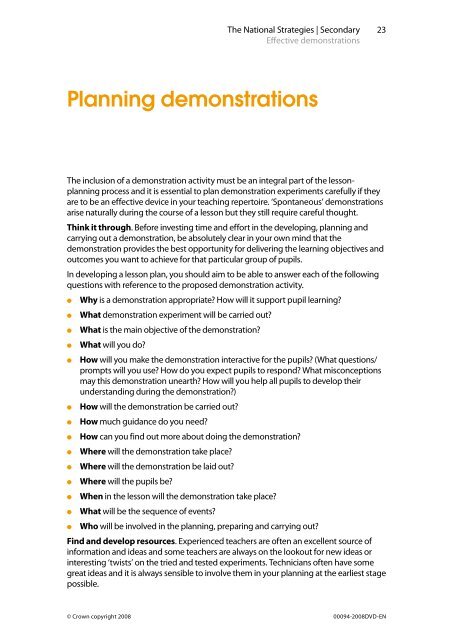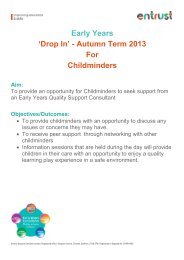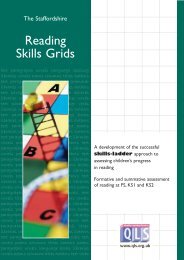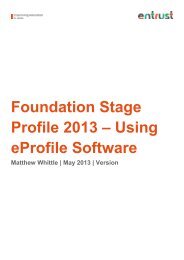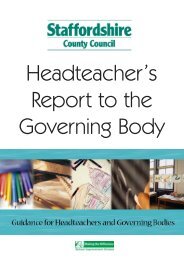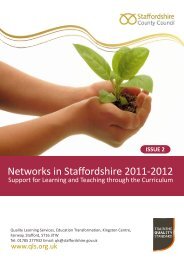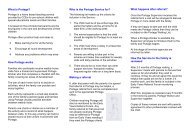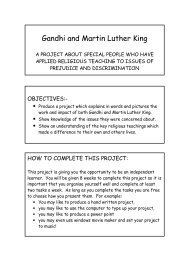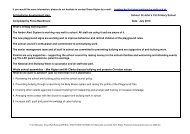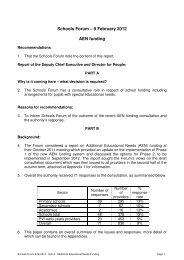Effective demonstrations booklet (401 KB) - Staffordshire Learning Net
Effective demonstrations booklet (401 KB) - Staffordshire Learning Net
Effective demonstrations booklet (401 KB) - Staffordshire Learning Net
Create successful ePaper yourself
Turn your PDF publications into a flip-book with our unique Google optimized e-Paper software.
© Crown copyright 2008<br />
The National Strategies | Secondary<br />
<strong>Effective</strong> <strong>demonstrations</strong><br />
Planning <strong>demonstrations</strong><br />
The inclusion of a demonstration activity must be an integral part of the lessonplanning<br />
process and it is essential to plan demonstration experiments carefully if they<br />
are to be an effective device in your teaching repertoire. ‘Spontaneous’ <strong>demonstrations</strong><br />
arise naturally during the course of a lesson but they still require careful thought.<br />
Think it through. Before investing time and effort in the developing, planning and<br />
carrying out a demonstration, be absolutely clear in your own mind that the<br />
demonstration provides the best opportunity for delivering the learning objectives and<br />
outcomes you want to achieve for that particular group of pupils.<br />
In developing a lesson plan, you should aim to be able to answer each of the following<br />
questions with reference to the proposed demonstration activity.<br />
● Why is a demonstration appropriate? How will it support pupil learning?<br />
● What demonstration experiment will be carried out?<br />
● What is the main objective of the demonstration?<br />
● What will you do?<br />
● How will you make the demonstration interactive for the pupils? (What questions/<br />
prompts will you use? How do you expect pupils to respond? What misconceptions<br />
may this demonstration unearth? How will you help all pupils to develop their<br />
understanding during the demonstration?)<br />
● How will the demonstration be carried out?<br />
● How much guidance do you need?<br />
● How can you find out more about doing the demonstration?<br />
● Where will the demonstration take place?<br />
● Where will the demonstration be laid out?<br />
● Where will the pupils be?<br />
● When in the lesson will the demonstration take place?<br />
● What will be the sequence of events?<br />
● Who will be involved in the planning, preparing and carrying out?<br />
Find and develop resources. Experienced teachers are often an excellent source of<br />
information and ideas and some teachers are always on the lookout for new ideas or<br />
interesting ‘twists’ on the tried and tested experiments. Technicians often have some<br />
great ideas and it is always sensible to involve them in your planning at the earliest stage<br />
possible.<br />
23<br />
00094-2008DVD-EN


